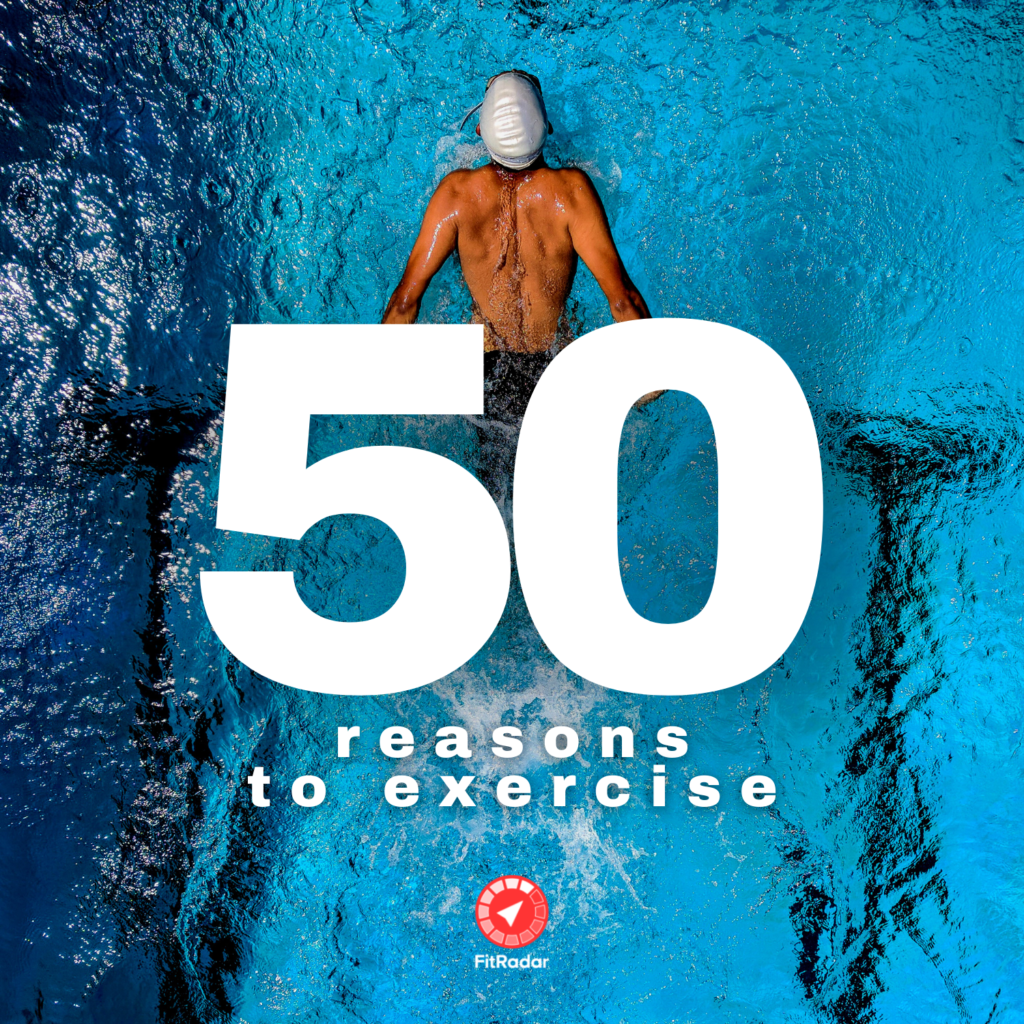
01. Lifts your mood
02. Improves learning abilities
03. Builds self-esteem
04. Keeps your brain fit
05. Keeps your body fit & able
06. Boosts mental health
07. Boosts your immune system
08. Reduces stress
09. Makes you feel happier
10. Has anti-aging effects
11. Improves skin tone and colour
12. Improves sleeping patterns
13. Helps prevent strokes
14. Improves joint function
15. Improves muscle strength
16. Alleviates anxiety
17. Sharpens memory
18. Helps to control addictions
19. Boosts productivity
20. Boosts creative thinking
21. Improves body image
22. Gives you confidence
23. Helps you keep focused in life
24. Improves eating habits
25. Increases longevity
26. Strengthens your bones
27. Strengthens your heart
28. Improves posture
29. Prevents colds
30. Improves appetite
31. Improves cholesterol levels
32. Lowers risk of (certain) cancers
33. Lowers high blood pressure
34. Lowers risk of diabetes
35. Fights dementia
36. Eases back pain
37. Decreases osteoporosis risk
38. Reduces feelings of depression
39. Prevents muscle loss
40. Increases energy and endurance
41. Increases sports performance
42. Increases pain resistance
43. Improves balance and coordination
44. Improves oxygen supply to cells
45. Improves concentration
46. Helps with self-control
47. Lessens fatigue
48. Increases sex drive & satisfaction
49. Makes life more exciting
50. Improves Quality of Life
P.S. Visit our website and join the waiting list. Fitness is closer than you think!
